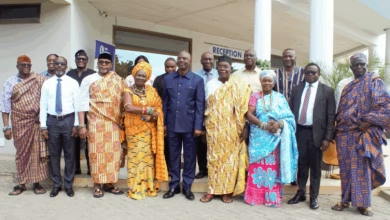Election 2024: Offline Voting Can Mitigate 70% of Electoral Interference Risks

- Offline voting solves 70% of electoral interference issues.
- ACDT warns of potential cyber-attacks on Ghana's Electoral Commission.
- Information manipulation remains a challenge despite offline voting.
- Protecting candidate integrity and informed decision-making is crucial.
In a bid to ensure the integrity of Ghana’s upcoming general elections, Data Privacy and Information Security specialist Desmond Israel has stressed the importance of offline voting. This comes after the Africa Center for Digital Transformation (ACDT) warned of potential cyber-attacks on the Electoral Commission and other stakeholders.
According to Israel, conducting voting offline significantly reduces the risk of cyberattacks on Election Day. He believes that this approach solves 70% of the security concerns, making it a critical measure to counteract electoral interference.
While offline voting addresses a significant portion of security concerns, Israel notes that the country still faces challenges from information manipulation. Misinformation, disinformation, fake news, and propaganda can influence voter perceptions and compromise the democratic process. Ghana’s cyber defenses, like those of other countries, remain vulnerable to state-sponsored cyber warfare. Israel emphasizes the need for robust cyber infrastructure to protect against such threats.
Despite the benefits of offline voting, Israel cautions that the country is not immune to data and information manipulation. The protection and integrity of electoral candidates and the choices made by electorates are equally crucial to the democratic process. Israel stresses the importance of making informed decisions based on genuine issues rather than fabricated narratives. He points to available tools for verifying the veracity of published information.
The specialist warns against the influence of misinformation and disinformation on voter perceptions. He encourages citizens to form opinions based on local issues rather than manipulated information. Israel highlights the potential danger of voters being misled by technology-induced ‘rented’ crowds and approval rates. He advocates for critical thinking and informed decision-making.
Offline voting is a crucial measure to ensure the integrity of Ghana’s elections. However, it is essential to address the remaining 30% of security concerns and protect against information manipulation to ensure a free and fair democratic process. By prioritizing offline voting and promoting media literacy, Ghana can mitigate the risks of electoral interference and ensure a secure and unbiased election.






